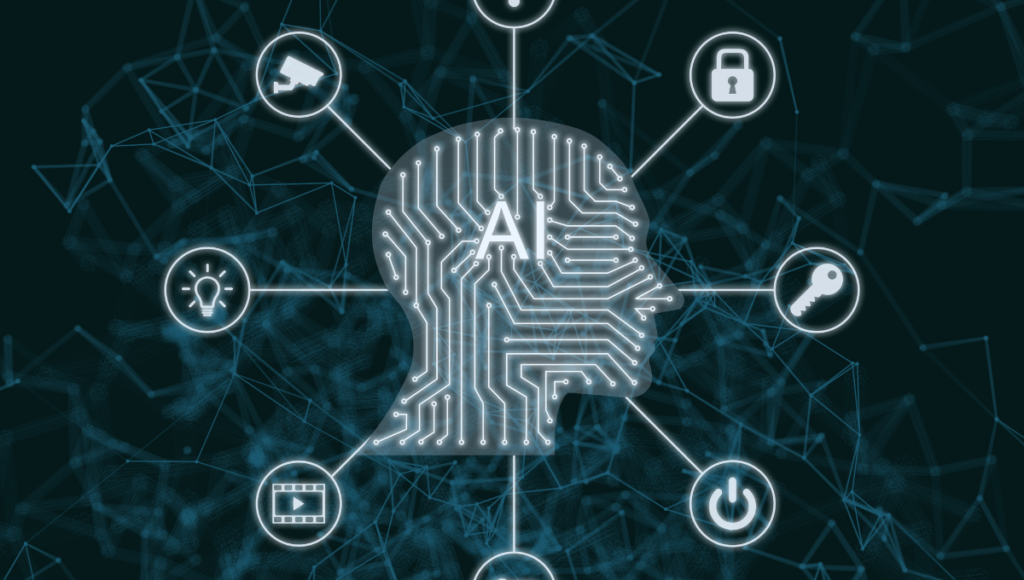7 Remarkable Types of AI and How They Are Making a Difference in the World

- 1. Reactive Machines
- 2. Limited Memory AI
- 3. Theory of Mind AI
- 4. Self-Aware AI
- 5. Artificial Narrow Intelligence
- 6. Artificial General Intelligence
- 7. Artificial Superintelligence
- Scope of Different Types of AI
- Features of Different Types of AI
- Real-Life Applications of Different Types of AI
- Frequently Asked Questions About the Types of AI
The world of technology has witnessed many phenomena in the past decade, from smartphones to cloud computing. But none has been more sweeping than the advent of artificial intelligence (AI). It has not only redefined the way we interact with machines but also reimagined the possibilities of our future. The launch of ChatGPT in 2022 renewed the focus on the potential of AI in powering innovation across different domains. This is because AI can take many forms, each with its unique set of capabilities. Nearly 59% of Indian enterprises use AI actively in their businesses as of November 2023, according to an IBM survey. Therefore, it is important to understand the types of AI to shed light on its real-world applications. Let’s look at seven remarkable types of AI, their features, and how they’re implemented across industries.
There are two key ways to categorize the seven types of AI. The first category includes reactive machines, limited memory, theory of mind, and self-aware AI. The second category contains narrow AI, general AI, and super AI. The former deals with capabilities, whereas the latter concerns functionalities. Let’s examine further:
1. Reactive Machines
Reactive machines operate solely on predefined rules and algorithms without memory or learning capabilities. They can perform specific tasks efficiently. However, these systems cannot adapt to new situations or learn from past experiences.
2. Limited Memory AI
Limited memory AI models can retain some information from past experiences, allowing them to make decisions based on historical data. It is conducive for use in autonomous vehicles and recommendation systems.
3. Theory of Mind AI
The concept of theory of mind AI is still in the experimental stage. However, once it develops fully, the model will be able to understand human emotions, beliefs, intentions, and thought processes. It can enable machines to interact with humans in an empathetic manner.
4. Self-Aware AI
Self-aware AI refers to systems with consciousness that are capable of realizing their existence and emotions. They represent the zenith of artificial intelligence but are a long way from self-awareness since the human brain hasn’t been fully understood by scientists yet. This has not stopped these systems from being the subject of philosophical debate.
5. Artificial Narrow Intelligence
Narrow AI, also known as Weak AI, is developed for a specific task or set of tasks. It lacks the general cognitive abilities of humans. For instance, virtual assistants such as Siri and Alexa were designed using this model.
6. Artificial General Intelligence
General AI, or Strong AI, resembles a human because it can understand, learn, and apply knowledge across various domains. Theoretically, its objective is to create software that works on tasks it isn’t trained for.
7. Artificial Superintelligence
The speculative theory of super AI stipulates that the model can surpass humans’ cognitive abilities. It can boast superior computational power and trump humanity’s collective intelligence, posing serious existential questions.
ALSO READ: How to Become an AI Scientist? Learn the Top 8 Skills for This Role
Scope of Different Types of AI
1. Narrow AI
The system has a well-defined scope, making it the most common type of AI. It performs a single task after being trained on vast amounts of data.
2. Limited Memory AI
These models possess a wider scope than reactive machines, given that they learn from limited experiences. They can store past data and use it to influence current decisions.
3. Reactive Machines
The scope of this AI model is narrow because it lacks memory or learning ability. It typically reacts to its environment based on pre-programmed rules.
4. General AI
The scope of this AI is endless as it can learn and perform intellectual tasks that usually require human intelligence. However, general AI remains a speculative concept.
5. Superintelligence AI
This system constitutes the broadest possible scope among all the types of AI. It can surpass human intelligence in several areas- ..
6. Theory of Mind AI
The scope of this system is hypothetical but very wide. It can understand the thoughts and intentions of others. As a result, it can interact with humans on a much deeper level.
7. Self-Aware AI
The concept is prevalent in the realm of science fiction but is abstract. This model is self-aware and possesses consciousness. Hence, its scope is vast and unpredictable.
ALSO READ: What is Artificial Intelligence Optimization? All You Need to Know
Features of Different Types of AI
1. Predefined Rules
Reactive Machines operate solely on predefined rules and algorithms. They cannot store past experiences. Hence, they can only perform specific tasks without generalizing knowledge to other domains. However, their performance is quick due to their rule-based nature.
2. Memory Retention
Limited memory AI, as the name suggests, can store historical data and recall past experiences to inform decision-making. It can learn over time by adapting to feedback from its past context.
3. Efficiency
Narrow AI has expertise in a narrow range of tasks or domains. It achieves efficiency and accuracy in tasks such as image recognition, natural language processing, and data analysis by training on large datasets.
4. Empathy
It is possible for a machine using the theory of mind AI to comprehend human emotions, beliefs, and intentions. Hence, this helps the machine to interact with humans in a more empathetic manner. It leads to intuitive reasoning by inferring the mental states of others.
5. Consciousness
Self-aware AI can acknowledge its own existence and internal states just like humans. It is capable of reflecting on its thoughts and improving itself. It is also capable of understanding emotions and bringing nuance to its decision-making.
6. Versatility
General AI is the closest to aping human-like cognitive abilities, including creativity of humans, among all the types of AI. So, it can pick up cues from multiple experiences and apply these insights to new situations.
7. Rapid Learning
Super AI can not only match human intelligence but can also exceed it with its higher computational power and problem-solving capabilities. It poses significant implications for the economy, society, and humanity as a whole, with a range of potential benefits and risks.
ALSO WATCH: Analytics in E-commerce by Ratnakar Pandey, Lead- ML & Analytics, Amazon Customer Services India
Real-Life Applications of Different Types of AI
1. Elementary Tasks
Reactive machines cannot perform complex tasks. It limits their use to simple tasks like traffic light controllers that adjust based on traffic flow, thermostats, and simple filtering systems for spam.
2. Basic Learning
Limited Memory AI can develop recommendation systems that deliver personalization to customers. For example, Netflix’s recommendation engine that suggests programs based on the viewer’s past viewing and preferences.
3. Multiple Applications
Weak AI is the most popular model today among all the types of AI. It is predominantly used in image/speech recognition, data analysis, and games. For instance, businesses can identify patterns and trends in large datasets for financial markets and game developers can create realistic opponents in video games.
It is important to remember that real-world applications are limited to only three types of AI. In other words, the theory of mind, self-aware, general, and super AI are not in use by any individual or organization. They are hypothetical concepts that are not achievable with our current technology. However, it is possible that the theory of mind AI can be used in robots or virtual assistants in the distant future.
ALSO READ: How AI Has Transformed Spam Detection and Improved Email Security
Frequently Asked Questions About the Types of AI
1. What are the Key Considerations for Implementing AI in Product Development?
Factors like data quality, model selection, and regulatory compliance, among others, are considered during product development. The model needs to be transparent to build trust among stakeholders. Companies need to address ethical concerns like bias and ensure privacy. They must design user-centric experiences to integrate AI features seamlessly and achieve scalability. It needs to foster cross-functional collaboration among multidisciplinary teams like data scientists, engineers, and product managers. Firms need to put mechanisms for monitoring AI performance in place. It includes collecting feedback from users and iterating on AI algorithms.
2. How Can Businesses Leverage Different Types of AI to Enhance Customer Experience and Drive Innovation?
Businesses need to leverage different types of AI to augment customer experience and drive innovation. They can deploy narrow AI to create chatbots that can answer customer queries around the clock and deal with simple transactions. The model can analyze customer data and suggest relevant products, identify areas of improvement, and increase customer satisfaction. AI can examine customer preferences to personalize their experience by offering tailored recommendations. Moreover, AI models can perform intensive data analysis quickly to identify trends and predict customer behavior. It is easier to optimize product designs, craft marketing strategies, and automate repetitive tasks such as data entry.
ALSO WATCH: Day 3 | Creating Real Intelligence The Promise of AI | GSV+Emeritus India Summit
In conclusion, most businesses are ramping up their adoption of AI. The skill gap remains a barrier in the job market today. This is why they want professionals with expertise in different types of AI. Emeritus offers a range of artificial intelligence courses and machine learning courses tailored to deliver practical insights. They cater to everyone from a seasoned developer to a business executive looking to hone their skills. These courses cover all types of AI with projects curated by industry experts to thrive in the age of AI. Enroll today and embark on a journey to future-proof your career!
Write to us at content@emeritus.org





